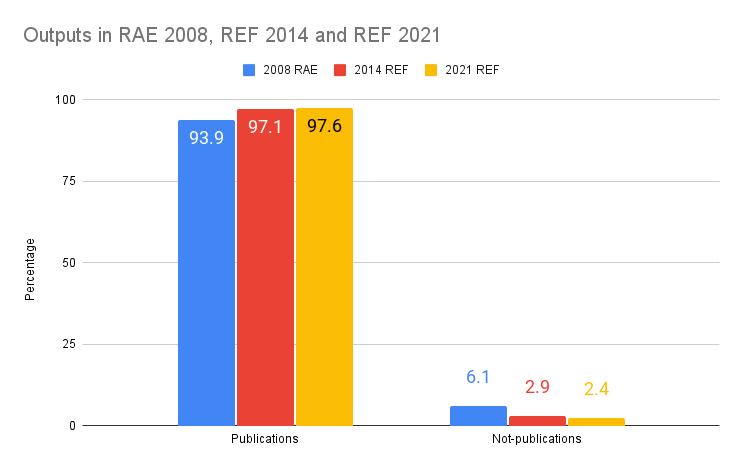Why do we need the Hidden REF?

About us
If we don’t recognise everyone involved in research, we limit our ability to conduct research.
The Hidden REF began as a one-off national competition in 2020 with the goal of celebrating all research outputs and everyone who is involved in their creation. It has since become a widely recognised campaign which is changing research culture by increasing awareness of the vital role of non-traditional outputs (NTOs) and Hidden Roles in the UK and beyond. You can learn more about the people behind the Hidden REF on our committee page.
The REF has an incredible ability to to shape research culture, but it is limited by the way in which HEIs interpret the REF guidelines. Although the REF actively encourages the submission of a wide range of outputs that are vital to research, and has done so since at least 2008, HEIs remain highly sceptical that NTOs will be assessed fairly and competitively. Traditionally HEIs have judge research success, value and excellence almost exclusively on the basis of publications (i.e. books or scholarly articles): 97% of outputs submitted to REF2014 were publications. This increased to 98% for REF2021. The REF’s parallel focus on impact case studies and the research environment has not noticeably increased the status of NTOs and hidden roles.
If we rely on publications as the only metric of research success, we overlook many of the non-traditional outputs and hidden roles that are vital to research.

Why are non-traditional outputs and a Hidden Roles so important?
Non-traditional outputs exist within a paradox. They are vital to most research and often embody essential methods or technologies. Yet their importance is not recognised, which creates a disincentive to invest time and resources in NTOs. This adversely affects the reliability, reproducibility, effectiveness, transparency, and productivity of research
Hidden Roles are part of the same paradox. They are often staff who are employed in the production or management of NTOs. They have vital skills and experience but are undervalued because they are not named in publications and the NTOs they work with are not adequately recognised. This undervaluation makes Hidden Roles less attractive compared to other industries, creating unnecessary barriers to recruiting and retaining skills that are essential to research.
Research culture needs to change so that success is correctly associated with all the outputs and roles on which research relies. This will have a much greater impact than just increasing the comprehensiveness of the REF. If we value the outputs and people that are vital to research, we will create a research environment that is far more effective at conducting research.
Our discussions across the sector show a strong desire to create a better system of research assessment. Currently, these good intentions are eclipsed by the fear that any change to the status quo puts at risk the funding on which universities rely. The role of the Hidden REF is to give the sector confidence that recognising the full breadth of research will lead to a more successful REF submission – and better research in general.
